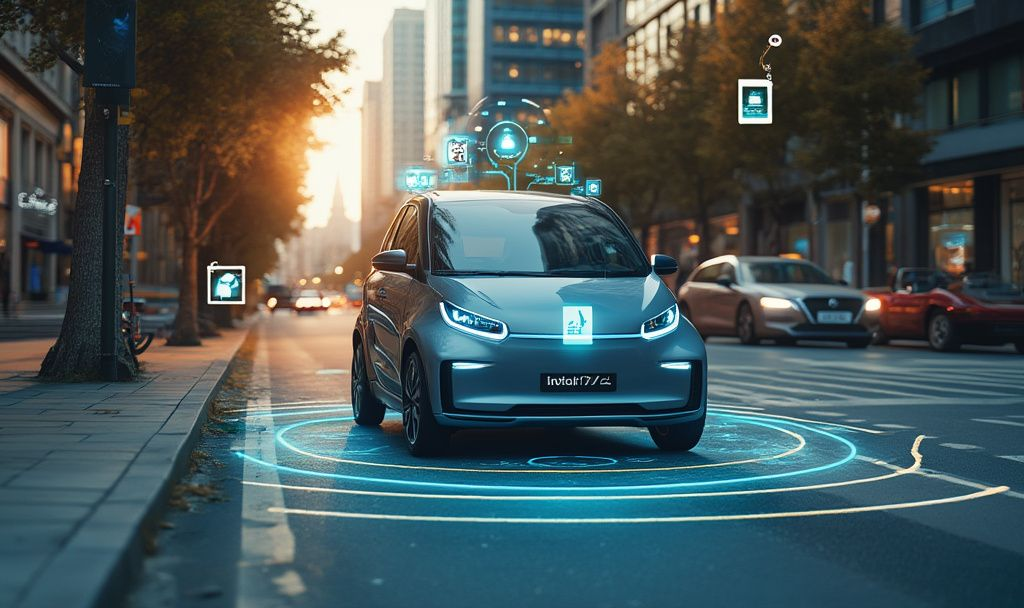In an era where technology enhances every aspect of our lives, smart cars redefine driving with seamless connectivity, enhancing safety, convenience, and comfort. Discover how these futuristic innovations transform vehicles into intelligent companions, navigating the road alongside us with cutting-edge efficiency and intelligent support.

Exploring the Rise of Smart Cars
The world of automobiles is witnessing a transformative shift with the rise of smart cars, a change fueled by cutting-edge innovations in car connectivity. These advancements enable vehicles to communicate seamlessly with drivers, other vehicles, infrastructure, and even the cloud. Collectively known as connected car technology, these features include software-defined vehicles, AI-driven capabilities, real-time data sharing, and integration with smart devices. As these technologies infiltrate the market, they are reshaping how consumers, automakers, and technology developers view driving.
People often search for information about smart cars to stay updated on the latest trends shaping their automotive experience. They are curious about the impact of these innovations on safety, comfort, entertainment, and efficiency. With the rise of autonomous driving and wireless connectivity, understanding what makes a car “smart” is becoming essential for anyone considering buying or upgrading a vehicle.
Key Technologies and Tools in Smart Cars
Central to smart cars are several critical technologies that enhance various aspects of driving. Connected car technology enables these vehicles to interact with everything around them, commonly referred to as vehicle-to-everything (V2X) communication. Autonomous or self-driving vehicles leverage this connectivity to navigate and make decisions with minimal human intervention, guided by sophisticated automotive AI.
Some common tools and resources in smart cars include AI-powered dash cams and driver assistance systems, which enhance safety through real-time alerts and diagnostics. Wireless charging mounts and smartphone integrations boost convenience, while comfort accessories like heated cushions and smart air purifiers elevate the in-car experience. Additionally, software platforms now provide regular vehicle updates and maintenance notifications to keep cars performing optimally.
The Human Impact of Car Connectivity
Innovations in car connectivity have far-reaching effects on human experiences, making driving safer and more enjoyable. Features like proactive driver alerts and personalized infotainment systems reduce stress, contributing to overall well-being for both drivers and passengers. The availability of connectivity for emergency response further enhances peace of mind on the road.
Beyond individual users, these technologies have cultural and social significance, symbolizing the future of mobility and reflecting society’s changing expectations for convenience and sustainability. As connected and smart cars become more embedded in daily life, they represent a shift toward smarter living and urban innovation.
Economic, Ethical, and Social Considerations
The proliferation of smart cars has enormous implications for the automotive industry. Major stakeholders, including automotive manufacturers and tech companies, are in a heated race to offer compelling smart car ecosystems. Innovative collaborations, like Honda’s partnership with Amazon Web Services, exemplify the growing convergence between automotive and tech industries. Learn more about these automotive innovations.
However, these advancements also raise ethical and policy questions concerning data privacy, cybersecurity, and liability in autonomous driving. As the industry pushes forward, balancing innovation with consumer protection is crucial. Regulatory discussions remain pivotal in shaping how these technologies evolve and impact daily life.
The Future of Smart Cars
As we look toward the future, the integration of smart car technologies promises to continue reshaping the automotive landscape. Major events like the Consumer Electronics Show (CES) spotlight significant advancements in AI, electric vehicles, and autonomous technology. By 2025, it is projected that up to 25% of new cars will be electric, with an increasing number showcasing advanced connectivity features. These trends highlight consumer expectations for ongoing innovation and personalization in their driving experiences. More on these developments can be found here.
Ultimately, the rise of smart cars represents both a technological revolution and a cultural shift. By embracing these innovations, society moves closer to a future where vehicles are not just modes of transport but integral components of a sophisticated and interconnected ecosystem. To explore some practical smart accessories that can enhance your car in 2025, check out this collection.
Frequently Asked Questions (FAQs)
What technologies are used in smart cars?
Smart cars use technologies like vehicle-to-everything (V2X) communication, AI-driven capabilities, and real-time data sharing to enhance driving experiences.
How do smart cars improve driver safety?
Smart cars improve safety through AI-powered dash cams and driver assistance systems that provide real-time alerts and diagnostics.
Why are smart cars considered more efficient?
Smart cars are more efficient due to their software-defined features, integration with smart devices, and continuous over-the-air updates that optimize performance.
What is the role of AI in autonomous vehicles?
AI in autonomous vehicles helps them navigate and make decisions with minimal human intervention by processing data from various sensors and connected technologies.
What are the ethical concerns surrounding smart cars?
Ethical concerns include data privacy, cybersecurity, and liability issues in cases of accidents involving autonomous vehicles.
